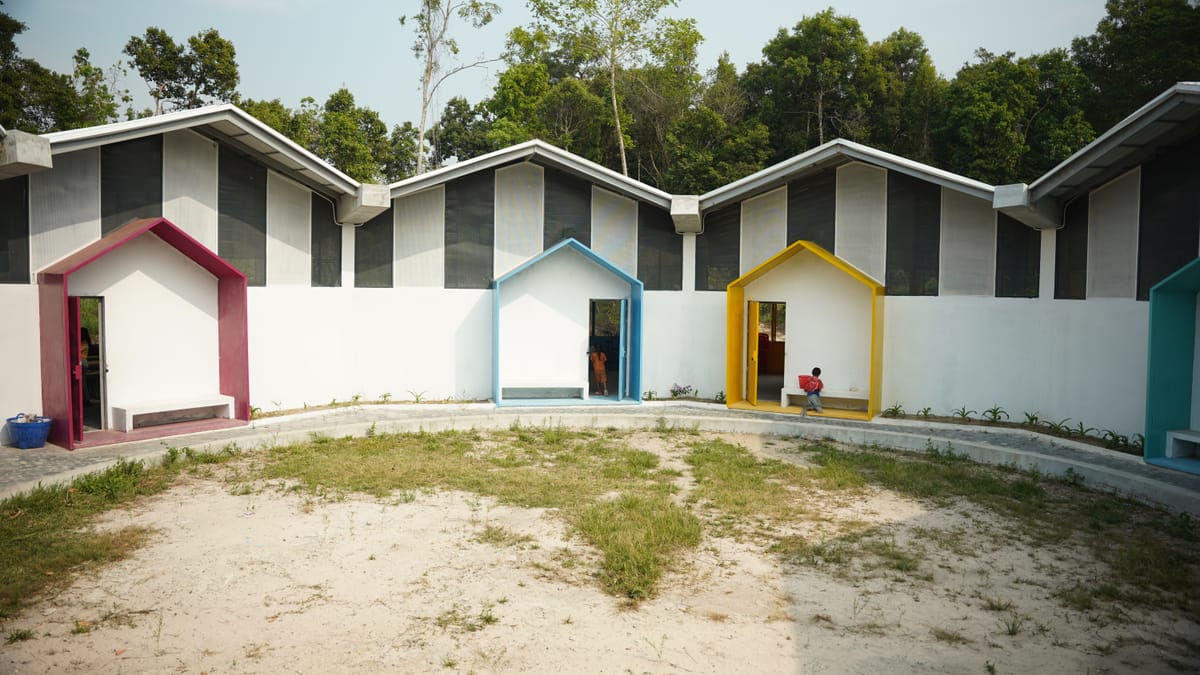A Change in Direction
The week before we left for Kathmandu, the capital of Nepal, we arrived in Cambodia. This week, in between, was to select 10 new students to join our program and right some wrongs of the previous team.

"You can't help everyone, but everyone can help someone."
– Ronald Reagan
We received news from the founders just a few weeks earlier. Their message was clear: “Strive for excellence. Support only those within our target group.” Over the years, too many students were enrolled in the program who fell outside the NGO's target audience. Our task was straightforward: rip the band-aid off and correct the wrongs made by the previous team. We had to let some students go who did not meet the organization's criteria.
Facing the Team
On our first full day back in Siem Reap, we had a meeting with all our in-house employees. We explained everything: the revised vision, the hard decisions, and what would happen next. The meeting was emotional, unsurprising, since they had lived side by side with the children for nearly a year, sharing meals, birthdays, and bedtime stories. Once we explained why it was necessary and they understood, we shifted into gear. We broke down the new plan step by step. Everyone had a role, and we had only a few days to make it happen.
The week we thought would be a soft landing back into our routine turned out to be one of the most intense weeks we’ve ever faced in our career, in Cambodia, and these were just the first two days. However, I'd like to think that we are still moving forward—one student, one dream, one mountain at a time.
Delivering the News, in Two Directions
The following day, after the enrollment process, our team split up across Kulen Mountain. Kiki and I returned to Popel village—a scattering of homes and red earth roads surrounded by dense forest and coconut palms.
Our caregiver, Pheak, and newly hired Learning Center teacher, Meas, traveled by motorbike, taking the winding jungle paths to visit families whose children had just been accepted. Meas grew up here. She knew every shortcut, every smile, every family name. Her presence was a bridge of trust. And the joy on the faces of the new students’ parents, when they received the good news in person, was heartwarming—many had never dared to hope for such a chance.
Back in Popel, we met the families of our current students. In the cool shadow of the nearly finished Learning Center building, the crowd gathered on the stone steps, forming a half-circle—mothers with babies tied to their hips, fathers in worn work shirts.
Somphors, our second caregiver, translated my words as I explained:
Not all students would be returning.
We reassured them this wasn’t a judgment, but a realignment with our mission to help the most vulnerable.
Once the message was delivered, we divided the group. Kiki and Somphors led the parents of students who would return to another classroom, where they reviewed our new Code of Conduct—an agreement that laid out expectations and responsibilities.
Meanwhile, I stayed behind with Teacher Mao, a respected elder in the village, to answer questions from the remaining families. The mood shifted. Those whose children were allowed to return expressed a mix of relief and gratitude, whether for the more transparent structure, the promise of continued support, or the simple fact that their child had a future at Kulen Outreach.
Others, understandably, were less accepting. Voices rose. Faces tightened.
We repeated the explanation again and again. After a while, the crowd thinned as people began to walk away.
When everyone had left, I joined Kiki and Somphors, helped them review the new rules, and assisted them in signing the code of conduct. Eventually, the first group left, with signed papers in hand. But as they did, the room filled again—this time with the parents of the students who would not return. Their frustration was raw. Some were angry. Others pleaded, even offering us money to let their child stay at the school, but we provide free education for those who can't afford it, which showed us why the changes were needed. Many simply wanted answers.
We answered what we could. We explained that this wasn’t about merit or discipline, but about mission. Still, the tension remained.
After the discussions, we drove to Preah Thom, a larger village on the mountain. There, we regrouped with Pheak, who shared that one parent had become aggressive, yelling at her, trying to block the way, and even throwing stuff when she passed by, upon hearing the news that his son could not continue his studies at the NGO. However, she also confirmed that all families of the newly accepted students were overjoyed.
Debriefing the Weight
As the van bumped back down the dirt roads to Siem Reap, dust rising like smoke behind us, we sat in silence, each of us lost in our thoughts. Once we reached paved roads, we debriefed with the caregivers. The weight of the past days hung heavy.
They requested something we hadn’t yet considered—a moment of closure.
A final goodbye with the students who would not return.
A chance to offer love and dignity in parting.
We agreed without hesitation.
This week was not the week we planned.
But perhaps it was the week we needed to realign, refocus, and remind ourselves who we are here for. Not everyone. But the ones who need it most.
This was one of the most challenging days I experienced in Cambodia, but it was necessary.